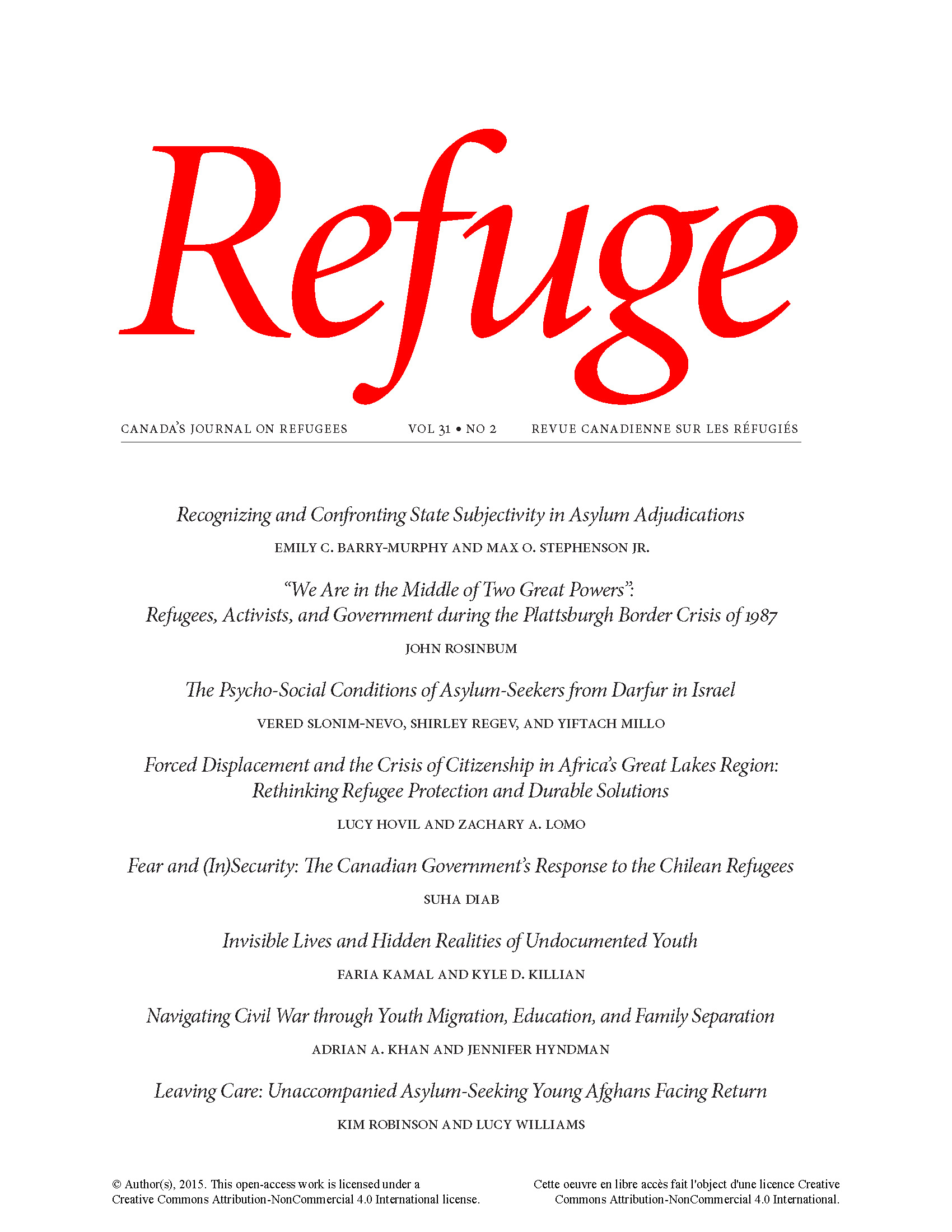Recognizing and Confronting State Subjectivity in Asylum Adjudications
DOI :
https://doi.org/10.25071/1920-7336.40305Mots-clés :
United States, asylum officers, asylum adjudication, asylum law, subjectivity, statism, imaginationRésumé
La loi aux États-Unis investit les agents préposés aux demandes d’asile avec la responsabilité d’accorder la protection humanitaire aux réfugiés et en même temps de protéger le pays des dangers venant de l’extérieur. Un tel mandat nécessite que les agents réconcilient des exigences potentiellement conflictuelles tout en assurant un traitement équitable des demandeurs. Cet article étudie le processus selon lequel les agents chargés de cette responsabilité peuvent développer une subjectivité axée sur le régime qui les conditionne souvent à voir les demandeurs dans une perspective privilégiant la sécurité et la fraude. Également, cette analyse examine l’efficacité potentielle de stratégies pratiques liées à l’imagination esthétique, cognitive, affective, et morale qui pourraient rendre les agents plus conscients de leur subjectivité axée sur l’état et comment elle influe sur leurs perceptions de ce qui constitue un danger pour la sécurité nationale et un risque de fraude.
Statistiques
Téléchargements
Publié-e
Comment citer
Numéro
Rubrique
Licence
© Emily C. Barry-Murphy, Max Stephenson Jr. 2015

Cette œuvre est sous licence Creative Commons Attribution - Pas d'Utilisation Commerciale 4.0 International.
Les auteurs qui publient dans Refuge conservent le droit d’auteur associé à leur œuvre, et octroient au public une licence Creative Commons Attribution - Utilisation non commerciale 4.0 International. La licence permet l’utilisation, la reproduction et l’adaptation du matériel avec attribution par tous moyens et sous tous formats pour des fins non commerciales. Pour des informations générales sur les licences Creative Commons, visitez le site Creative Commons. Pour la licence CC BY-NC 4.0, consultez le résumé lisible par l'homme.







